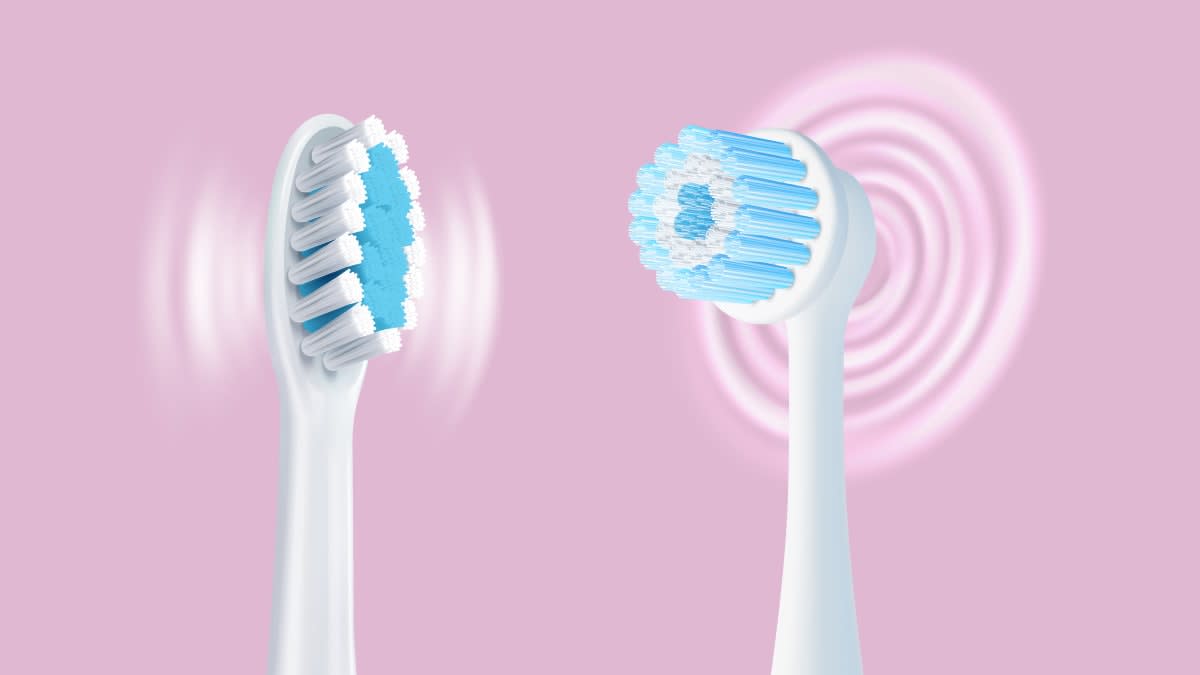Which Kind of Electric Toothbrush Is Better: Rotating or Sonic?

The company-funded studies evaluating different types of electric toothbrushes tend to involve panels of people who use the brush they’re testing for anywhere from a few days to several weeks or even months. The study participants are evaluated on various measures of dental health, like the amount of plaque on their teeth or level of gingivitis they have, at the start and end of the study.
While industry-funded research shouldn’t be discounted—after all, most pharmaceutical research is funded by big companies, too—it’s fair to be skeptical, especially when outcomes seem to confirm the result a company would want.
Eric G. Campell, PhD, a professor of medicine at the Anschutz School of Medicine at the University of Colorado, has spent much of his career studying financial conflicts of interest in medicine and research. “The research that I and most of my colleagues have done at this point is largely settled,” he says. “Studies that are funded by companies, if published, are significantly more likely to have results that favor both the safety and the efficacy of the company’s product.”
One way that scientists make sense of a lot of individual studies with conflicting results is to gather data from multiple studies into one, in what’s called a systematic review. But on the question of the best electric toothbrush type, even systematic reviews come to opposite conclusions sometimes.
For example, when I reached out to Procter & Gamble for a comment on how consumers can make sense of this conflicting research, a spokesperson pointed me to a systematic review published in the journal Healthcare in 2024, which was conducted by independent scientists. That review found that the majority of studies in their analysis found an advantage to oscillating brushes specifically for cleaning plaque in between teeth.
Although Philips hasn’t yet responded to the same question (I’ll update this article once it does), it’s indeed possible to find independent systematic reviews that come to the opposite conclusion. One such review, published in 2022 in the International Journal of Environmental Research and Public Health, found that sonic toothbrushes had the edge over the oscillating kind for plaque removal and gum inflammation.
To cut through the confusion, I turned to Cochrane, an international network of researchers and professionals that conducts systematic reviews, which is generally considered to be the gold standard for this kind of research.
Fortunately for consumers, there’s a Cochrane review that directly compares different mechanisms of electronic toothbrushes. Its result? The Cochrane researchers conclude that it’s essentially a draw.
“The findings of this review do not support the use of any particular mode of action for powered brushes,” the authors wrote. They did note that the data appear to show a slight advantage to oscillating toothbrushes over sonic ones for plaque reduction and gingivitis. But it’s so small that the researchers couldn’t say whether the statistical difference in performance actually translated into a meaningful difference in dental health outcomes for users.
In other words, the results weren’t clear enough to make a recommendation either way.
Source link











